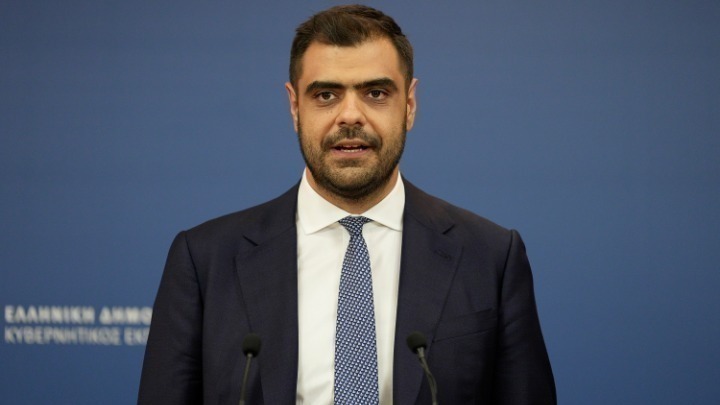The Turkish president’s visit to Athens for the 5th High Level Cooperation Council was another significant step toward establishing the positive climate in Greek-Turkish relations, while the Greek premier presented clearly the government’s positions and discussed future steps with Türkiye, government spokesperson Pavlos Marinakis told ‘Apogevmatini’ in its Sunday edition.
In an interview, Marinakis said that particularly the Declaration on Friendly Relations and Good-Neighbourliness signed by the two leaders in Athens was key, because “it is the first time that Greece and Türkiye commit to relations of friendship and good neighborliness.”
He also noted the initiative to provide seven-day visas to Turkish citizens and their families to visit ten Greek islands (Chios, Kalymnos, Kastellorizo, Kos, Leros, Lesvos, Limnos, Rhodes, Samos, and Symi). This past week it was announced that the step was approved by the European Commission.
Marinakis also spoke of what he called ‘the historic decision’ to introduce voting by mail-in ballot by Greek nationals living abroad. The procedure, once introduced, will allow the diaspora to vote in Greek Europarliament elections and in national ones. This would also help voters in Greece who are physically handicapped or in advanced age to vote from their homes, as well as university students studying in cities away from home.
Asked whether reacquiring investment grade will mean more supplements to citizens, he said that the government’s economic policy was not based on bonuses or supplements but in permanent measures raising wages and pensions, abolishing over 50 tax regulations, and raising the available income of citizens, as the National Statistical Authority data already shows. The investment-grade rating allows the government to support those with the greatest need without saddling the younger generations with debt, while the government also reduces public debt, he added.
New electricity bills
Speaking of the confusion over the new electricity bills to be issued in four color-coded categories, he said that “some people tried to turn something simple into something complicated, in order to confuse consumers. Up to now we had 30 different types of charge categories, and the Environment and Energy Ministry reduced the existing 30 into three categories – blue with unchanging pricing, and the yellow and orange with fluctuating prices. In addition, a new green price category is introduced, in which all consumers who do not make a choice will be included.” This last one will provide a lower flat rate and allow consumers to compare prices and change provider, even on a month-to-month basis, Marinakis said. “This increases competition and we believe will lead to prices being lowered,” he added.
SOURCE; ANA-MPA







